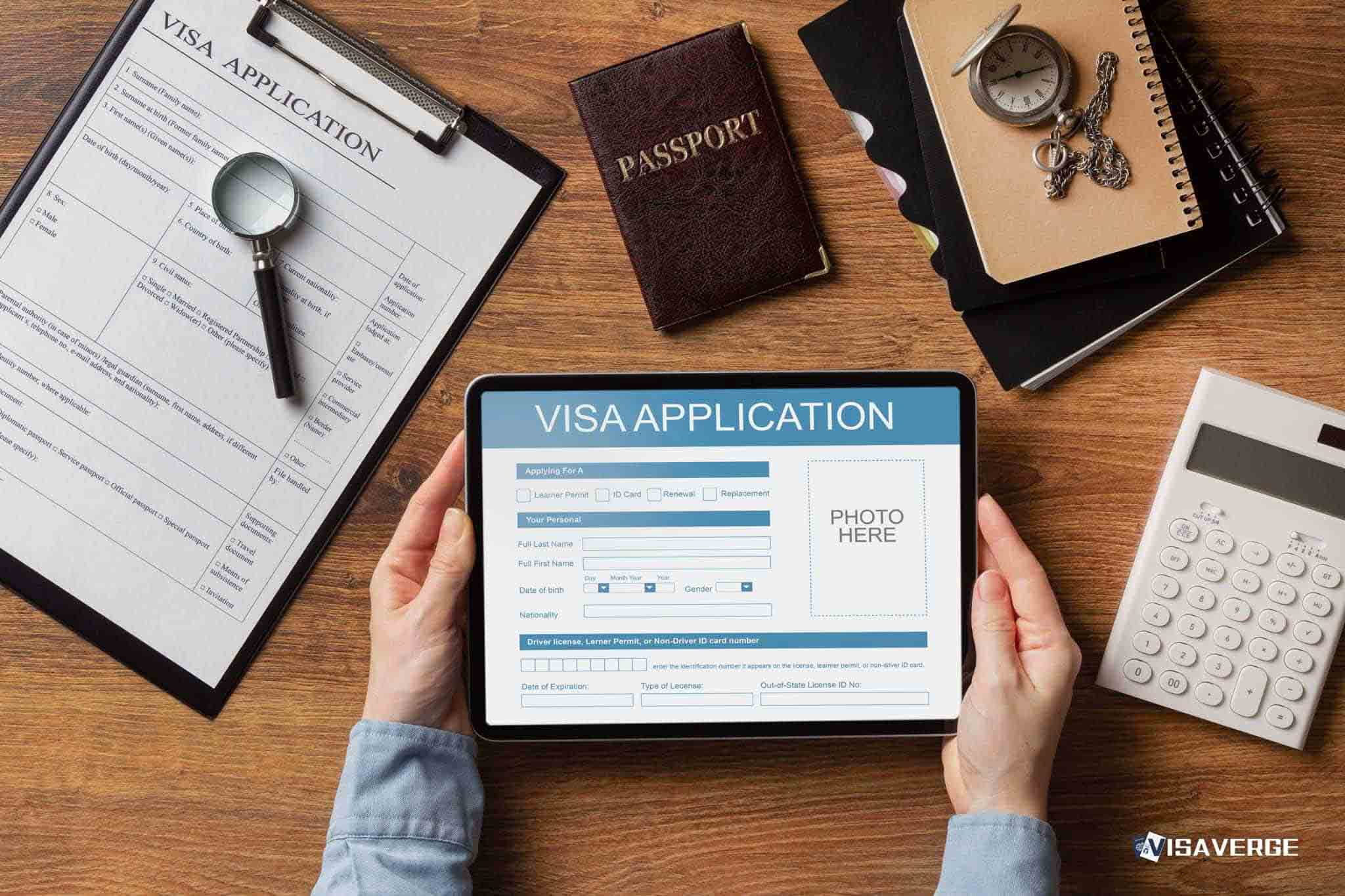(UNITED STATES) Applications from international students to U.S. colleges have dropped as the Trump administration tightens student visa rules. New reviews, visa revocations, and travel limits are changing study plans across the globe.
On May 28, 2025, Secretary of State Marco Rubio said the State Department would “aggressively revoke” and heavily check student visas, especially for Chinese and Hong Kong applicants in sensitive STEM fields. Interviews paused while social media checks expanded.

What changed and who is affected
Officials say the moves aim to protect national security. The increased screening targets students with alleged ties to the Chinese Communist Party and those entering “critical fields” such as technology and engineering.
According to the State Department, the changes include:
- Paused F, M, and J visa interviews to expand vetting.
- Higher scrutiny of applicants from specified regions.
- Institutional limits on international enrollment at some universities.
Students from the Middle East, North Africa, and sub-Saharan Africa also face added barriers under a new travel ban announced June 4, 2025, covering 19 countries. Many prospective students from those regions now cannot enter or face long delays that risk missing start dates.
Harvard suspension signals a new approach
In a striking step, President Trump signed a June 4, 2025 proclamation to suspend the entry of new foreign students to Harvard University under F, M, or J visas, citing security concerns and alleged vetting failures. The order also allows revoking existing visas for certain current Harvard students.
The White House framed the move as targeted, while campus leaders called it unprecedented. The message to other schools was clear: institutions could face direct limits if deemed risky.
Key elements of the action
- Suspension of new F, M, J entries to a named institution.
- Authority to revoke certain existing visas at that institution.
- Signal to other universities about potential direct limits.
A chilling effect on U.S. campuses
University leaders and international education groups report declines in new applications and deposits.
- Moody’s analysts warned in July 2025 that tighter visa controls, interview pauses, and travel bans threaten tuition revenues and add budget stress—especially at schools that rely on full‑pay international students.
- VisaVerge.com reports admissions offices are:
- Shifting recruitment to countries with fewer travel risks.
- Building joint programs outside the U.S. to keep pipelines open.
The administration’s broader shift
Officials have also:
- Frozen some exchange program funding.
- Fired staff in international education offices.
- Issued new orders to monitor foreign students for security reasons.
President Trump has said the government should restrict visas to students who “cannot love our country.” Taken together, these actions signal a long-term policy direction rather than a single-season change.
Important takeaway: These are systemic changes affecting admissions, campus operations, and individual students’ plans—not isolated incidents.
What this means for students right now
Many students face:
- Longer waits for visas.
- Higher refusal rates.
- Possible visa revocations even after arrival.
Those remaining in the U.S. worry about renewing status or traveling home and returning in time for classes. Universities must follow tougher reporting rules while counseling students on travel risks and status checks.
Practical steps students can take now
- Stay in close contact with your school’s international office. Ask about enrollment confirmation, travel timing, and reporting duties.
- Keep thorough records: admission letter, funding proof, transcripts, research summaries, and a clear study plan. Bring organized copies to interviews.
- Avoid non‑urgent travel. If you leave the U.S., reentry may take longer than before.
- Monitor official updates. The State Department’s student visa page posts current guidance and wait times: https://travel.state.gov/content/travel/en/us-visas/study/student-visa.html
- Prepare for detailed vetting. Officers may ask about lab access, research partners, and future work plans—especially in STEM.
A case study: shifting plans midstream
Consider a master’s student from Nairobi accepted to a U.S. engineering program starting in August. Under the June travel rules, she now faces a ban or a long exemption process.
Her options included:
- Starting remotely where possible (but lab courses require in‑person work).
- Requesting a spring deferral.
- Applying to a Canadian program as a backup.
Her story reflects a common pattern this season: students hedging with multiple offers outside the U.S. while watching policy updates week by week.
Reactions from campuses and advocates
- University leaders warn of lost talent and reduced research output.
- International offices report heavier workloads helping students navigate canceled interviews and sudden checks.
- Advocacy groups urge Congress to:
- Restore exchange funding.
- Create clearer, faster security reviews so legitimate students can proceed.
According to VisaVerge.com, schools are also reviewing research partnerships to avoid projects that might trigger extra scrutiny.
Security goals vs. academic openness
Supporters argue that foreign adversaries use academic programs to gain sensitive knowledge. They say stricter screening and targeted bans protect labs and intellectual property.
Critics counter that the measures are overbroad, punishing innocent applicants and harming the United States’ scientific edge. They note the long history of international students fueling startups, research breakthroughs, and regional economies near campuses.
Outlook for the 2025–26 cycle
With no sign of easing, colleges expect fewer new arrivals through 2025. Responses include:
- Courting students through overseas hubs, dual degrees, or short residencies abroad.
- Cutting costs or merging programs if tuition shortfalls grow.
- Drawing student interest to competing destinations with clearer rules.
Students weigh the risk that policies might tighten further mid‑degree.
Practical steps for different groups
- New applicants:
- Apply early.
- Budget extra time for interviews.
- Secure firm housing and funding proof.
- Keep backup offers in countries with faster processing.
- Students in the U.S.:
- Maintain full‑time enrollment.
- Keep your passport and status documents updated.
- Consult your international office before any trip.
- Researchers in sensitive fields:
- Expect more questions about projects and collaborators.
- Ask your department to document how your work avoids restricted areas.
- Universities:
- Plan for longer onboarding.
- Provide more staff training on compliance.
- Issue clear student advisories about travel and status maintenance.
Key dates and actions to remember
| Date | Action |
|---|---|
| May 28, 2025 | Rubio announces tougher checks and plans to “aggressively revoke” certain student visas; interviews paused to expand social media screening. |
| June 4, 2025 | President Trump suspends new foreign student entries to Harvard and authorizes targeted visa revocations; a new travel ban covers 19 countries. |
| July 2025 | Moody’s flags rising financial risk for U.S. higher education tied to enrollment declines and processing delays. |
Bottom line
The United States remains a top academic draw, but current rules make entry harder for many. Students should plan cautiously, keep documents ready, and lean on campus advisors for up‑to‑date guidance. Schools, meanwhile, face tough choices to steady budgets while keeping global classrooms open.
This Article in a Nutshell
New U.S. visa rules are reshaping global study plans: paused F, M, J interviews, aggressive revocations, and a Harvard entry suspension threaten admissions, research partnerships, and tuition revenue, forcing students to defer, study remotely, or seek alternative countries while universities scramble to adapt compliance and recruitment strategies.













